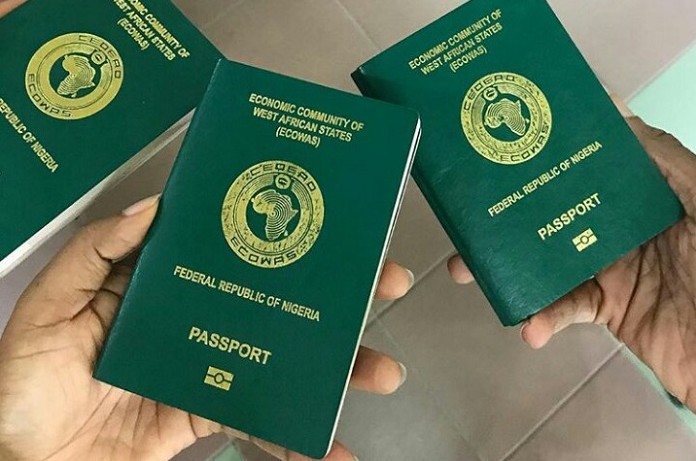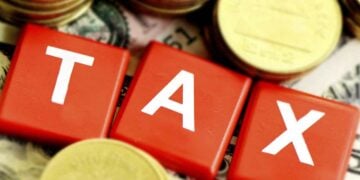The Nigeria Immigration Service’s announcement of increased passport fees – from ₦50,000 to ₦100,000 for the 32-page passport and from ₦100,000 to ₦200,000 for the 64-page version – has predictably triggered outrage across the country.
Former presidential candidate of the Labour Party,Peter Obi has condemned the increase as “yet another burden on struggling citizens,” while many Nigerians view it as further evidence of government insensitivity to economic hardship.
However, in our view a careful examination of the facts suggests that this fee adjustment, while painful, is both necessary and justifiable.
The criticism of these increases, though emotionally understandable, fails to acknowledge the significant improvements in passport services under Interior Minister Olubunmi Tunji-Ojo’s reform program.
The days of Nigerians sleeping at passport offices, enduring months-long delays, and paying bribes to expedite applications are largely behind us. The introduction of automation, contactless applications, home delivery systems, and centralised personalisation centers has transformed what was once a nightmare bureaucratic process into a relatively efficient service.
These improvements came at considerable cost, and sustaining them requires adequate funding.
A comparative analysis of passport fees across Africa reveals that Nigeria’s new rates, while substantial increases domestically, remain competitive regionally. Australia’s standard adult passport remains the most expensive worldwide, while many African countries charge comparable or higher fees. Cameroon charges $181 for a 32-page passport and $225 for a 64-page version – significantly higher than Nigeria’s new rates when converted. Sudan charges $250 for adult passports, while Morocco’s 32-page passport costs €165.70. Even Ghana, with its lower cost of living, charges $47.39 for a standard passport, which represents a higher proportion of average income than Nigeria’s fees do for most middle-class citizens.
The differential pricing between domestic and diaspora applications also makes economic sense. Nigerians living abroad pay $150 for a 32-page passport and $230 for a 64-page version – rates that remain unchanged despite the domestic increase.
This pricing structure recognises that diaspora Nigerians typically have higher purchasing power while ensuring that service costs reflect the operational environment where they are provided.
Processing passport applications in Nigeria involves different infrastructure costs, security considerations, and operational challenges than handling them at Nigerian missions abroad.
Critics like Peter Obi, while articulating legitimate concerns about economic hardship, miss a fundamental point about passport acquisition: it is not a basic necessity like food or healthcare but a specialised document required for international travel. Those planning international trips typically budget for airfares costing hundreds of thousands of naira, visa fees, accommodation, and other travel expenses.
In this context, passport fees represent a relatively small component of international travel costs. Moreover, the 5-year and 10-year validity periods mean that the annual cost of passport ownership is ₦20,000 and ₦20,000 respectively – reasonable amounts for documents that facilitate international mobility.
The timing of this increase, coming amid economic hardship, is admittedly challenging. However, delaying necessary fee adjustments to match inflation and service improvements would ultimately compromise the quality and sustainability of passport services.
The improvements achieved under the current administration – including the clearing of backlogs, introduction of advanced passenger information systems, and enhanced security features – require ongoing investment. Maintaining artificially low fees would force a choice between service quality and accessibility, ultimately harming the very citizens the critics claim to protect.
The technological innovations introduced by Minister Tunji-Ojo have revolutionised Nigeria’s passport system in ways that justify higher fees. The Advanced Passenger Information system enhances national security by enabling pre-travel screening of travelers. The contactless application system, particularly for renewals, eliminates the corruption that previously plagued the process.
The home delivery system provides convenience that was unimaginable under previous administrations.
These are not cosmetic changes but fundamental improvements that have restored credibility to the Nigerian passport globally.
The centralised personalisation center represents a particularly significant advancement. Previously, passport production was scattered across multiple locations with varying quality standards and security protocols. The new system ensures consistency, enhances security features, and increases processing capacity.
These improvements require sophisticated equipment, skilled personnel, and ongoing maintenance – all of which justify higher fees.
We acknowledge the legitimate concerns about economic hardship affecting many Nigerian families.
However, the solution is not to maintain artificially low fees for services that few families use regularly, but to focus government subsidies on basic necessities like healthcare, education, and food security.
The passport fee increase affects primarily middle-class and upper-middle-class Nigerians who can afford international travel – exactly the demographic that should bear the full cost of premium government services.
The argument that passport fees represent a “third increase in two years” also lacks context. Nigeria has experienced significant inflation during this period, making fee adjustments inevitable for any service provider.
The alternative would be deteriorating service quality as costs rise while revenues remain static. Given the improvements achieved in passport services, these increases represent value for money rather than arbitrary price gouging.
Furthermore, efficient passport services provide broader economic benefits that justify their cost. When Nigerian business people, students, and professionals can obtain passports quickly and reliably, it facilitates international trade, education, and economic opportunities that benefit the entire country.






